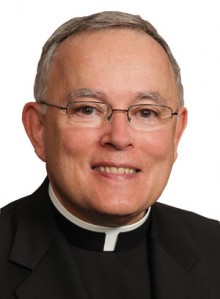Exactly 12 years ago this month (February 25) Mel Gibson released The Passion of the Christ. Gibson set a new standard in religiously themed films by drawing together superior acting (Jim Caviezel, Monica Bellucci and talented unknowns), directing (Gibson himself) and other excellent production values, and combining them with a compelling story (Christ’s Passion) and ample financial resources.
Gibson’s film is one of the great biblical screen adaptations. It’s as powerful now as when it was released. It’s deeply moving, but it’s also free of the sentimentality that can often ruin movies that deal with saints or faith or Scripture. Few biblically themed films come close to it in quality. And some, like Ridley Scott’s bloated Exodus, have managed to be lavish, offensive to believers and ridiculous all at the same time.
When I was young, before I joined the Capuchins, I dreamed about working on movies. Life took a different turn, but I’ve had a keen interest in films ever since. And so it’s a pleasure this Lent to suggest a few current or impending faith-friendly films that do have the quality to deserve our attention. They can’t match the skill and resources of Gibson’s epic. But they do have the kind of story appeal to make us think deeply about the meaning of our humanity and God’s love.
The Man Who Saved the World actually isn’t “religious” at all. Based on real events, the film (on the surface) is a documentary about a recent United Nations award for a man named Stanislav Petrov. A former colonel in the Soviet military, Petrov is a largely unknown hero. As a nuclear command officer in 1983, working purely on his instincts and under intense pressure, he refused to order a missile counterstrike on the United States when an error in Russian radar falsely reported an American ICBM attack. The decision prevented a catastrophe — but ironically, it ruined his career and worsened a bitter split with his family. The film appears to be about Petrov’s courage and its cost on the brink of nuclear war. But beneath that is something even more moving: a story of personal forgiveness and reconciliation.
[hotblock]
Full of Grace, now available in stores and through digital download, is a beautiful tale of Mary at the end of her earthly life. And The Young Messiah, due out in March, is the film adaptation of Anne Rice’s best-selling novel, Christ the Lord: Out of Egypt. Both films are well done and well worth seeing. They approach the characters of Mary and the young Jesus before his public ministry in fresh and absorbing ways.
Finally, and perhaps the best among these four films, is Risen, now in theaters. Joseph Fiennes (Shakespeare in Love, Enemy at the Gates) plays the role of a Roman centurion tasked with finding the “stolen” body of Jesus after the crucifixion. He gets much more than he bargained for. Peter Firth (The Hunt for Red October, Amistad, Spooks), as Pontius Pilate, heads an excellent supporting cast, and the story is unusual, believable and gripping. Risen is an outstanding piece of work.
Piety isn’t the first word most of us associate with the film profession. But that brings me to one last film anecdote worth sharing this Lent.
Readers my age may remember the 1967 Peter Brooks film Marat/Sade, based on the stage play of the same name. (The play’s full title is The Persecution and Assassination of Jean-Paul Marat as Performed by the Inmates of the Asylum of Charenton, Under the Direction of the Marquis de Sade.) With a cast of then-young Shakespearean actors like Patrick Magee, Ian Richardson, Clifford Rose and Glenda Jackson, Marat/Sade is a work of dark genius set in the wake of the French Revolution — riveting, disturbing and definitely not for the family or persons easily offended. One of the strongest and most unsettling performances is delivered by a character known simply as The Herald, who serves as a kind of narrator. The actor who played that role, and went on to a very successful career, was the late Michael Williams.
What has that to do with Lent or piety or faith? Just this: Williams was a lifelong and committed Catholic. As the BBC reported at his death in 2001, his marriage to (now Dame) Judi Dench spanned 30 years and “was regarded as one of the most enduring and endearing of show business couples.” He chaired the British Catholic Stage Guild until illness forced him to step down, and he served as president of Britain’s Roman Catholic Actors’ Guild. In the days just prior to Williams’ death from lung cancer, St. John Paul II knighted him in the Pontifical Order of St. Gregory.
I suppose the lesson here is that grace comes in all shapes and sizes; and saints — or at least people trying to become saints — show up in the least likely places and costumes, and even films. What we see on the surface of other people is only a fraction of who they really are. It’s worth remembering in a Year of Mercy.




Thank you Father ! What an informative review – you clearly have a knack and I look forward to more. You welcomed me into the Church at the Basilica here in Denver during my RCIA, and it was an honor I’ll never forget. We miss you out here. God bless.